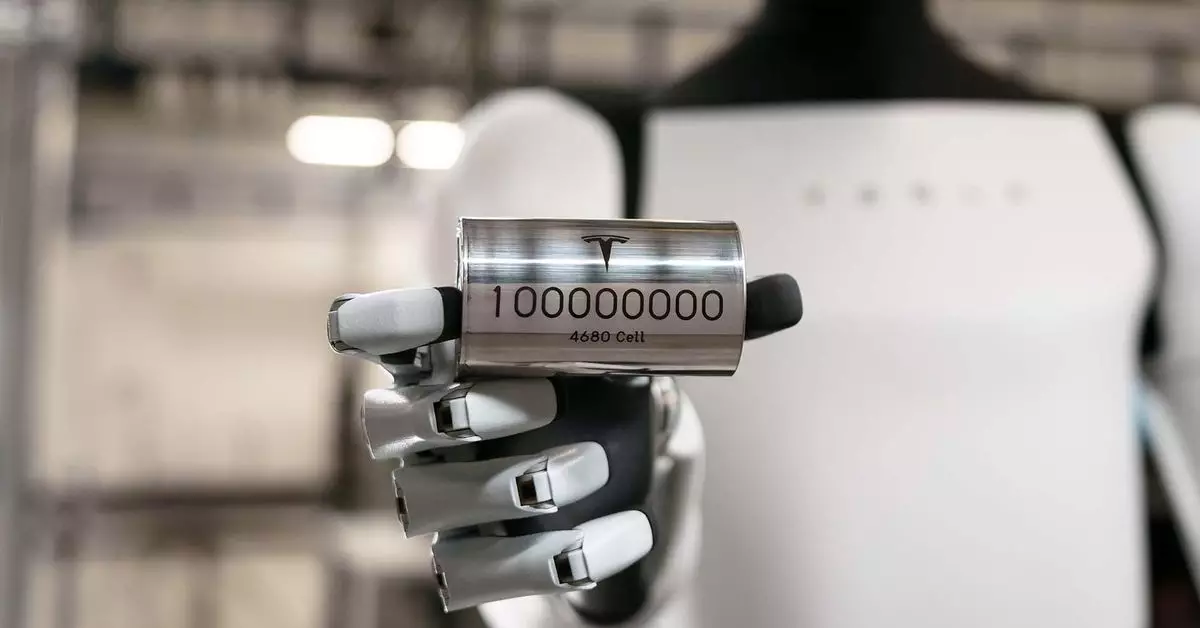The electric vehicle (EV) industry is characterized by fierce competition and innovation, with companies vying for dominance in technology and market share. Among them, Tesla stands as a progressive pioneer, often driving the conversation surrounding battery technology. At the same time, other industry leaders are vocal about their perspectives, shaping the future landscape of EV power solutions. One such voice in this ongoing dialogue belongs to Robin Zeng, the founder and chairman of Contemporary Amperex Technology Co. Limited (CATL), the world’s largest manufacturer of EV batteries, who recently critiqued Tesla’s ambitious battery design strategy.
In a candid interview, Zeng posed strong doubts regarding Tesla’s 4680 cylindrical battery cell technology, suggesting it might not live up to its lofty projections. His comments stem from a significant discussion he had with Elon Musk during Musk’s visit to China in April. According to Zeng, the conversation revealed a gap in Musk’s battery expertise, which he believes could jeopardize Tesla’s aspirations in this sector. The 4680 cells have been touted by Tesla to deliver an impressive fivefold increase in energy capacity compared to their predecessors, yet skepticism surrounding their practicality and performance persists.
Amidst the excitement of producing an enormous quantity of 100 million 4680 cells, reports indicate that Tesla is facing significant hurdles in achieving efficient production capabilities. Earlier in September, internal sources revealed Musk imposed a strict deadline to resolve cost-related challenges tied to these new battery cells. The ability to produce these batteries at scale, while maintaining performance and cost-efficiency, is crucial in ensuring Tesla’s sustained lead in the competitive EV market.
On the other end of the spectrum, CATL has established its dominance, supplying batteries not only for Tesla vehicles in China but also for other automotive giants like Ford. CATL has focused primarily on lithium iron phosphate (LFP) batteries, known for their stability and safety but often criticized for comparatively lower energy density compared to Tesla’s cylindrical cells. This raises questions about the diversity of technology in battery solutions available in the market and their implications on consumer choice and vehicle performance.
Zeng also critiqued Musk’s frequent tendency to set aggressive timelines that can lead to missed expectations. Referring to Musk’s approach to Full Self-Driving technology, he speculated that solutions that may genuinely require extensive research and development are often presented with short-term goals. This propensity to overpromise could hinder progress rather than accelerate it.
As the electric vehicle landscape continues to evolve, the interplay between competing philosophies in battery technology is becoming clearer. With Elon Musk at the helm of Tesla’s bold initiatives and Robin Zeng championing the established battery production prowess of CATL, a fascinating tug-of-war is unfolding. The future of EVs may not solely depend on who can produce the most promising battery technology but rather who can effectively navigate the intricate balance between innovation, practicality, and market demands. The competition is fierce, but the outcome remains uncertain, leaving consumers and stakeholders closely watching these titans grapple with their ambitious visions for the electric future.

